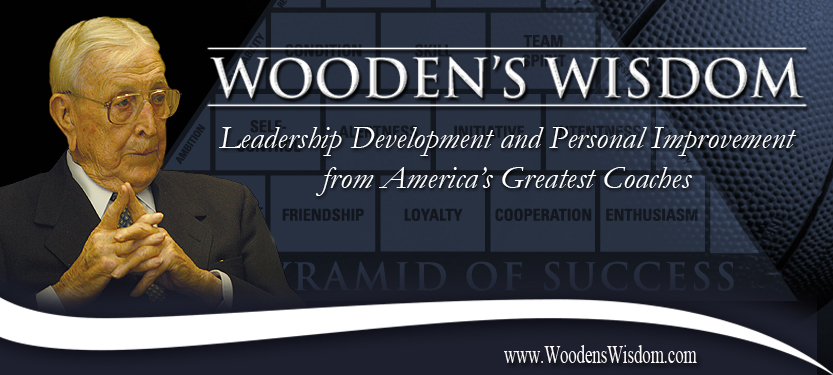
|
|
| Wooden's Wisdom - Volume 9 | Issue 379 |
| Craig Impelman Speaking | Championship Coaches | Champion's Leadership Library Login | |
|
INSPIRE INITIATIVE, NOT DEPENDENCY (PETE NEWELL) Hall of Fame coach Pete Newell (1915 –2008) coached men's basketball for 15 years. He led USF to the NIT Championship in 1949, the University of California to four consecutive conference championships and the 1959 NCAA championship, and a year later coached the gold medal-winning U.S. team at the 1960 Summer Olympics. After his coaching career ended, he ran a world-famous instructional basketball camp. Newell was considered "America's Basketball Guru". His contributions to the game of basketball have been so great that according to many, Newell has perhaps had as much or more influence on the game of basketball as any person in the modern era.
Coach Newell was fierce about Inspiring Initiative, not Dependency in his players. In the Bruce Jenkins book A Good Man: The Pete Newell Story, Coach Newell expanded on this idea:
"I wanted players with initiative, guys who could control a difficult situation on their own. People may not realize that years ago, you couldn't bring a player over to the sideline to talk to him. Players had to stand out in the middle of the court during your timeout. They changed that rule during my second year in coaching [1947] and I was angry about the change. I felt my team could always interpret what I was teaching; we didn't need all these darn meetings. The players have to know what they're doing, and why! I didn't want my players depending on me. I figured I'd teach them during the week, and when the game comes along, it's up to them. That's one reason I didn't like to call timeouts. I didn't want the players thinking that every time they got in a little jam, I'd bail them out. I wanted to make them figure it out"
Coach Wooden had the same approach. Newell described a game against UCLA that demonstrated the point:
"When I was at Berkeley, we were determined we weren't going to call a first time-out. John Wooden and I believed the same thing about time-outs, that it was a white flag, a last resort, almost an early surrender. At Berkeley, playing for the conference championship, neither one of us called a time-out in the first half. In the second half, with three minutes to go, UCLA called a time-out, because we "got them".
A parent doesn’t help their child when they constantly zoom in and fix things. A manager does more for his/her employees by asking them "What do you think?" as opposed to always being the answer person. A great teacher causes you to think rather than telling what to think. Abraham Lincoln said: "The worst thing you can do for those you love is the things they could and should do themselves."
The Chinese philosopher Lao Tzu (600 BC) said: "A leader is best when people barely know he exists, when his work is done, his aim fulfilled, they will say: we did it ourselves."
Do you call too many time-outs?
Yours in Coaching, Craig Impelman
|
COMRADESHIP Of all the ships that sail life's sea, Edgar Allen Guest (1881-1959)
|
|
For more information visit www.woodenswisdom.com |
|
© Copyright 2026 WoodensWisdom.com | # of Times Wooden's Wisdom Issues Opened: 7,885,710
Hosting & Design by:EverydayWebDesign.com